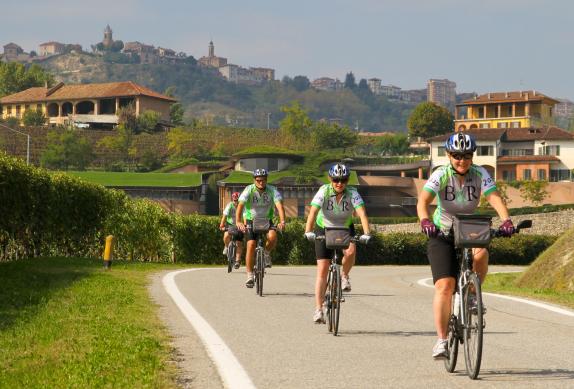Re-Cycling
Join the re-cycling craze.
Boomers are into health, or at least we should be. Cycling is one of the best and most enjoyable exercises for boomers.
If your re-cycling, that is beginning to cycle again, the good news is that the re-learning curve is not very difficult. If you’ve not straddled a bike since the sixth grade, I promise that you have not forgotten how to ride.
Most of us like to be outdoors. Cycling is possibly the easiest outdoor exercise to sustain for the rest of our lives.
My Cycling Story
I used to be a runner. No other exercise seemed to be as rewarding or challenging for me. After all, I had been running ever since I was 14, that is ahhhhhh, 48 years. No wonder my knees, ankles, and hips began to give me trouble over the last year or so. I purchased a bike and began to spin around the neighborhood. After just a few weeks I was up to ten miles every other day. I love it, even more than running. Most of my pain is gone, and I retrieved something I lost a long time ago with running: I can hear the wind blow by my ears as I ride.
I am really a re-cycler. Back in 1960, I purchased a ten-speed from which I delivered newspapers for the San Gabriel Valley Tribune for a couple of years.
One of the first things I learned when beginning my re-cycling campaign was that bikes have changed over the years. Oh sure, you can still get a three-speed, but don’t be afraid of bikes with 15 gears or more speeds. Manufacturers improved the shifters. They are very simple to shift. The wider range of gears prevents you from hurting your knees, which happens when you are forcing the pedals to turn in too tough a gear. You can get bikes with many, many gears. Mine has 24.
What to Buy – Cycling Has Changed
If you are just setting out to buy a bike you might be overwhelmed the huge selection. If you live in a larger town or do a lot of shopping in one, I recommend that you find a bike shop that rents bikes. Backroads, Butterfield & Robinson, VBT, and Timberline all rent excellent bicycles and will adjust them to your dimensions. Find something you like and give it a try for a few weeks. If you have the urge to buy one right away, then please stay away from used bikes sold in yard sales. They are often in disrepair and will discourage you about the whole ridding enterprise.
Here are a few buying tips from an expert.
If you have not biked in years, make sure that you have had your sight and hearing checked, or at least have the confidence that all is well in those departments. Also, you must be able to be flexible enough to look back over your shoulder. It would also be a good idea to look up the current laws and rules in your area that relate to bicyclists and sharing the road. One rule that is true everywhere: when riding on the roads bicycles are required to ride on the right (in the USA), with traffic, not against it.
There are some accessories that you should look into. First, you need a helmet. Who cares what it looks like. You are not a kid anymore. Matter of fact, it is chic for an adult to be seen wearing a bicycle helmet while riding. Bike shorts with liners make it a lot more comfortable sitting on those narrow, road bike seats. I suggest you get some padded riding gloves as well. They give you a surer grip and absorb some of the impact. They, too, are in. All these can be purchased at most sporting goods stores.
If your bike does not already come with them, I would purchase brackets for holding water bottles. Hydration is very important. Get a bottle that fits in the bracket. You might want to buy some energy bars or gels, the real stuff, not snack food or breakfast bars. The real stuff really works.
There organized bike trips for all ages, some that appeal to seniors — including those offered by Senior Cycling, subtitled Old Folks on Spokes. Their series of guided tours average between 30-40 miles per day.
I am here to tell you that having been a runner, a long-distance runner, to start serious biking at 62, it feels pretty good. I am thinking of competing soon.
Neighborhoods with bike paths or trails have a higher resale value than comparable ones without. So, if they are in your neighborhood, you are paying for them, so you might as well use them. If your neighborhood is missing such paths and trails, talk to your neighbors and local government officials about putting some in and you will probably contribute to saving the environment to boot.
Bottom line, cycling is one of the best exercises to take up later in life and senior cycling can greatly increase levels of fitness and resulting ability to enjoy life.
Check out our other Health and Fitness posts.
Get on a bike and go for a spin.
**************
By the way, if you like the subject matter of this blog, and would like to write an article, just let me know at editor@60sfolksintheir60s.com.

